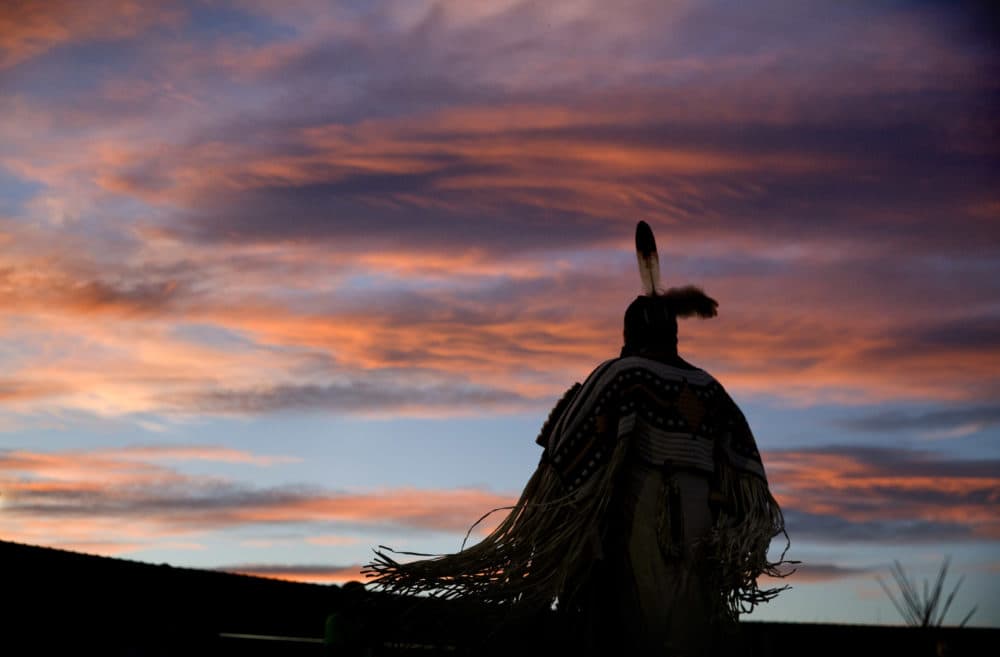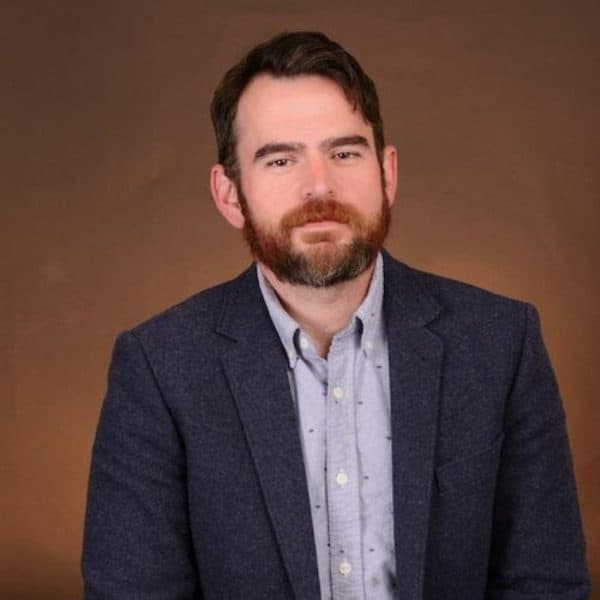Advertisement
Commentary
Indigenous Peoples' Day is a start. Now let’s change how we remember

Last week, Boston acting Mayor Kim Janey signed an executive order recognizing the second Monday in October as Indigenous Peoples' Day. The decision is a victory for Indigenous-led groups who have called for the change, though some of Boston’s Italian American residents, feeling overlooked, are now calling for the establishment of Italian Heritage Day.
Many people already associate Columbus Day with a general celebration of Italian culture, but its original intent was quite different. The creation of the holiday, in fact, erased part of the identities of both Indigenous and Italian people.
In the late 1700s, a New York merchant named John Pintard organized the Tammany Society, later known as the Columbian Order. He immediately set about making Christopher Columbus an icon of American nationalism in time for the 300th anniversary of his landing in the Americas, as they would become known. Pintard and his Tammany Society orchestrated a parade, speeches and the unveiling of a monument in Columbus’s honor on Oct. 12, 1792, generally recognized as the first observation of Columbus Day.
... Columbus was selected as the namesake 'because in a time when anti-Catholic and anti-immigrant feeling ran rampant, the American public embraced this famous explorer.'
Pintard’s organization was inspired by groups like the Schuylkill Fishing Company, an exclusive club made up of Pennsylvania’s white elites. The group observed King Tammany’s Day every May 1 with elaborate dinners, maypole dancing and burning the effigy of the celebration’s namesake, the Lenape leader named Tamanend, purported to have led the peaceful treaty negotiations with William Penn in 1682.
Historian Philip Deloria notes that members of the Schuylkill Fishing Company donned Indian-inspired clothing and performed Indian-style songs and dances of their own making during their revelry. In doing so, and by adopting the supposedly “affable” and “meek” Tamanend as their patron saint, these settlers imagined themselves to have become the colony’s true native population.
Decades later, Pintard proudly counted himself among America’s native sons, but he considered a Native American leader like Tamanend ill-fit to serve as a national forefather. Tim Winkle, a curator for the Smithsonian’s National Museum of American History, writes that Columbus was an unlikely choice to replace Tamanend, given the group's xenophobic and anti-Catholic attitudes at the time. The Columbus of Pintard and company’s imagination “bore little resemblance to historical reality,” as his brutal treatment of Indigenous peoples and his Catholic faith were disregarded.
The decades-long movement to rename Columbus Day as Indigenous Peoples' Day does not originate from an animosity toward immigrants or Catholics.
Pintard himself detested immigrants, Catholics and the impoverished. Writing about the 1832 cholera outbreak in New York, Pintard infamously remarked that the disease was “almost exclusively confined to the lower classes of intemperate dissolute & filthy people huddled together like swine in their polluted habitations.”
Almost a century after Pintard and the New York Tammany Society adopted Columbus as their new patron, the Knights of Columbus (KOC) did the same, though for very different reasons. According to the organization’s website, Columbus was selected as the namesake “because in a time when anti-Catholic and anti-immigrant feeling ran rampant, the American public embraced this famous explorer.”
In Boston, however, the Brahmin resented what Columbus meant to the influx of Catholic immigrants who arrived in the city in the early decades of the 19th century. As a result, a group of Brahmins promoted the false claim that Viking explorer Leif Erikson had not only beaten Columbus to the Americas by centuries but had built a settlement in present-day Cambridge. Hence the statue of Erikson on Commonwealth Avenue.
Advertisement
Thanks to the KOC, Columbus Day gained state recognition at the turn of the 20th century before being officially designated a national holiday in 1934. Today, KOC members ardently protest changing the name to Indigenous Peoples' Day on the grounds that doing so wrongly scapegoats Columbus. Although it is well-known that Columbus directly took part in or oversaw atrocities himself, KOC leaders claim it is unfair to blame Columbus for terrible things that occurred after his arrival. By the same token, it is difficult to believe that he “helped pave a path for the diverse society we have today.”
The decades-long movement to rename Columbus Day as Indigenous Peoples' Day does not originate from an animosity toward immigrants or Catholics. Prior to successfully bringing about the name change in Los Angeles, members of the Los Angeles City/County Native American Indian Commission (LANAIC) met with many of the city’s Italian American residents. Chrissie Castro, a LANIAC commissioner, says that, after initial opposition, new allies eventually emerged from the Italian American community. Might something similar yet occur in Boston?
More certain is the fact that the name change alone will not bring about much-needed shifts in who and how the nation remembers, especially when it relates to the treatment of Indigenous and immigrant peoples — past and present.
